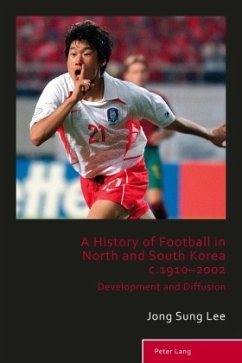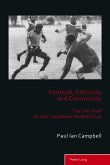For the Koreans, no sport has surpassed football in terms of its popularity and national importance, from the Japanese colonization era onwards. However, its importance has developed over time as a result of unusual and agonizing historical events, including the tragic split between North and South Korea.
This volume attempts to assess football's changing political and cultural place in Korea over the course of the twentieth century, from the Japanese colonial period via the Korean War to the end of the Cold War. It analyses the development and diffusion of football in North and South Korea from the following angles: nationalism and regionalism, internationalism and globalism, patronage, and the Korean style of play.
It particularly concentrates on the social meanings of the North Korean «miracle» in the 1966 World Cup and of South Korea's success in the 2002 tournament. The author shows that football in Korea has not only reflected changes in Korean society but helped to shape those changes.
This volume attempts to assess football's changing political and cultural place in Korea over the course of the twentieth century, from the Japanese colonial period via the Korean War to the end of the Cold War. It analyses the development and diffusion of football in North and South Korea from the following angles: nationalism and regionalism, internationalism and globalism, patronage, and the Korean style of play.
It particularly concentrates on the social meanings of the North Korean «miracle» in the 1966 World Cup and of South Korea's success in the 2002 tournament. The author shows that football in Korea has not only reflected changes in Korean society but helped to shape those changes.








